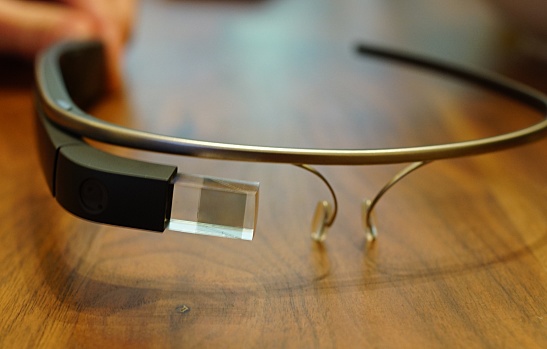Google Glass, Google’s enhanced-reality eyewear, could hit the market this year. That is the latest buzz from sources close to Google. Only a month ago, Google’s Eric Schmidt said that the world would have to wait until 2014 to put on Glass. But that may have been mere caution on his part regarding this major tech development project.
The exact debut date of Glass may be important for the holiday shopping lists of power techies; in the big picture, however, the release date is just a minor detail, unless there is an unforeseen bump in the road. The big question will be, in what ways can you actually use enhanced reality glasses? The answer is that we won’t know until users put them on.
Date Dispute Builds Buzz
As Sharon Gaudin reports at InfoWorld, the latest word from the Google-plex is that – in spite of Eric Schmidt’s note of caution – Glass is on track for release in 2013. This news is attributed to one source inside Google, as well as to another “close to” the tech giant.
The uncertainty about debut dates is a byproduct of the expectations game. According to analyst Zeus Kerravala of ZK Research, “Schmidt is likely giving a worst-case scenario.” If he officially announced a release date, and it slipped, the tech headlines would be all about the slippage. At the same time, Google wants to build buzz – and no one ever badmouthed a company for being early on a release.
Looking Through Google Glass, Brightly
All the same, the debate about when Google releases Glass is nothing compared to the one that will begin when the product is actually released and gets into the hands of serious tech users – or, more precisely, onto their foreheads.
Early reviews have been all over the field, from nothingburger to sinister-end-of-privacy to a tech revolution that will make smartphones and tablets all look 20th-century. These reviews can all be summed up in five words: No one really knows yet. So far only a handful of people have looked through Glass.
For a very rough comparison, look back to the dim and distant years around the start of the millennium. For years, evangelists said that tablets were the wave of the future. Skeptics asked why anyone would spend money on a less-than-laptop. Several attempts to launch tablets blew up on the launch pad like 1950s space rockets.
Then, a few years later, along came the iPad. Apple did not ask what consumers wanted. It built what it believed they would want – once they got their hands on it. And they did. Will consumers also find out that they love Glass? By the end of the year, the answer might appear right in front of your eyes.
[cf]skyword_tracking_tag[/cf]

